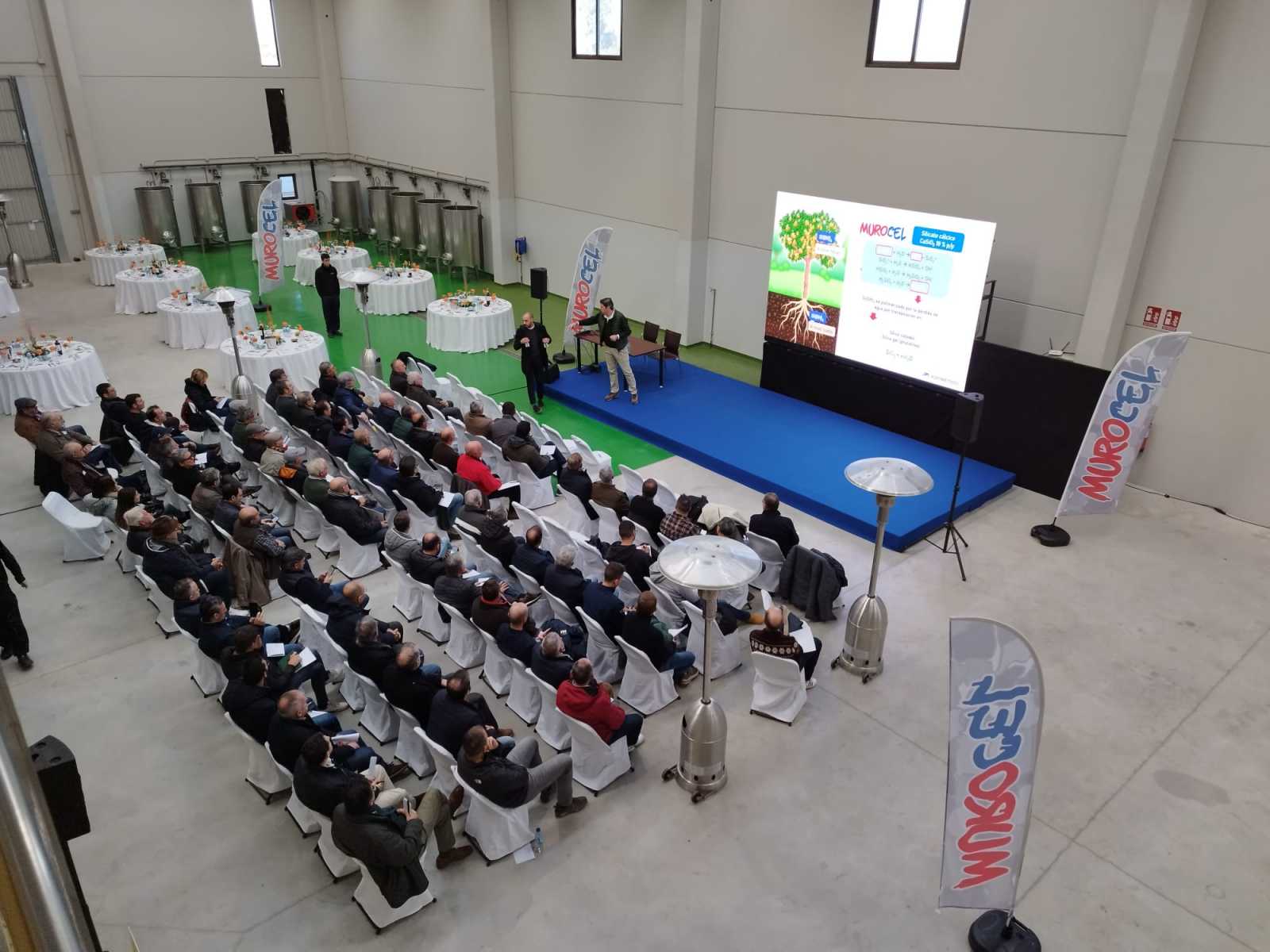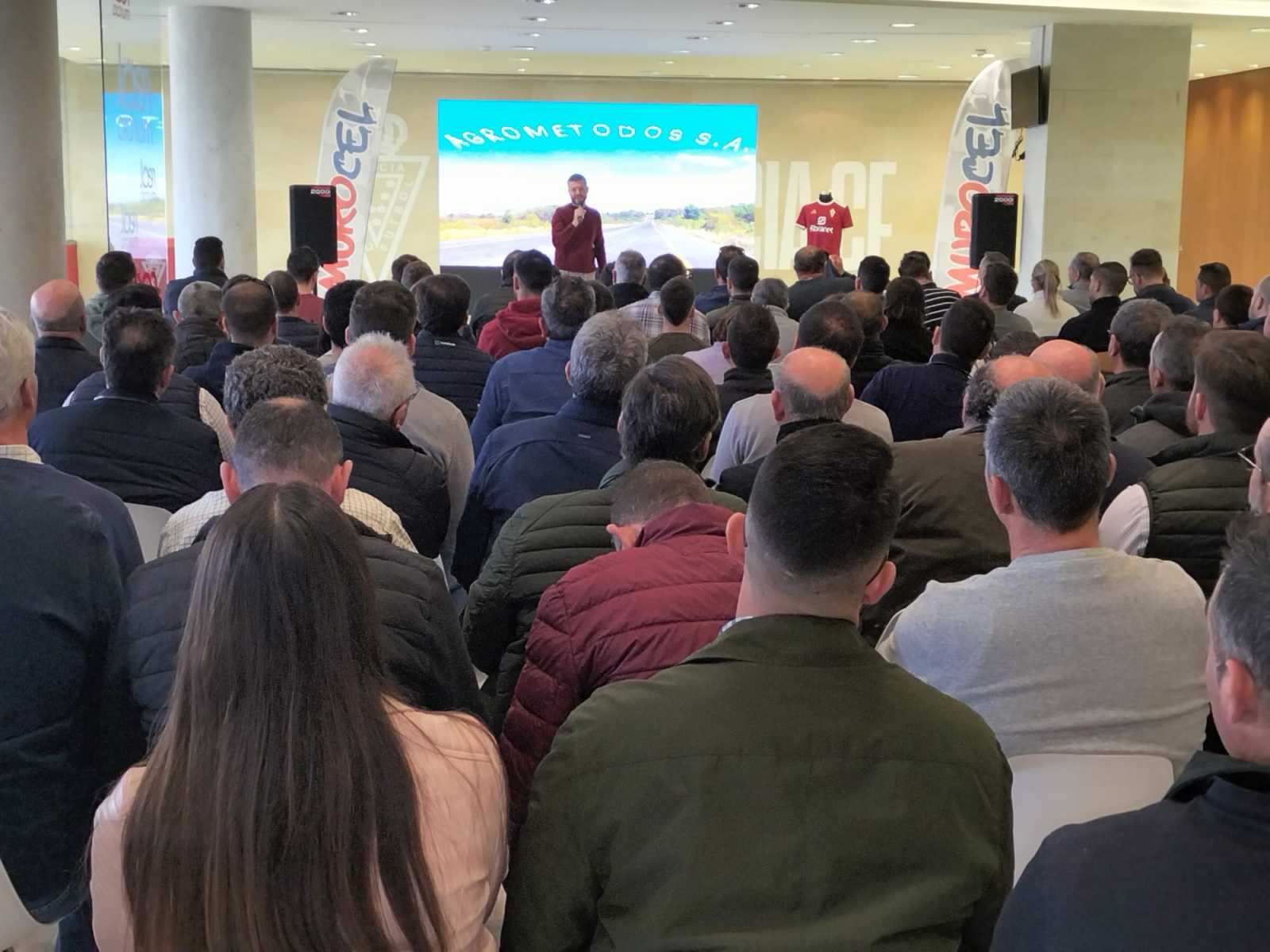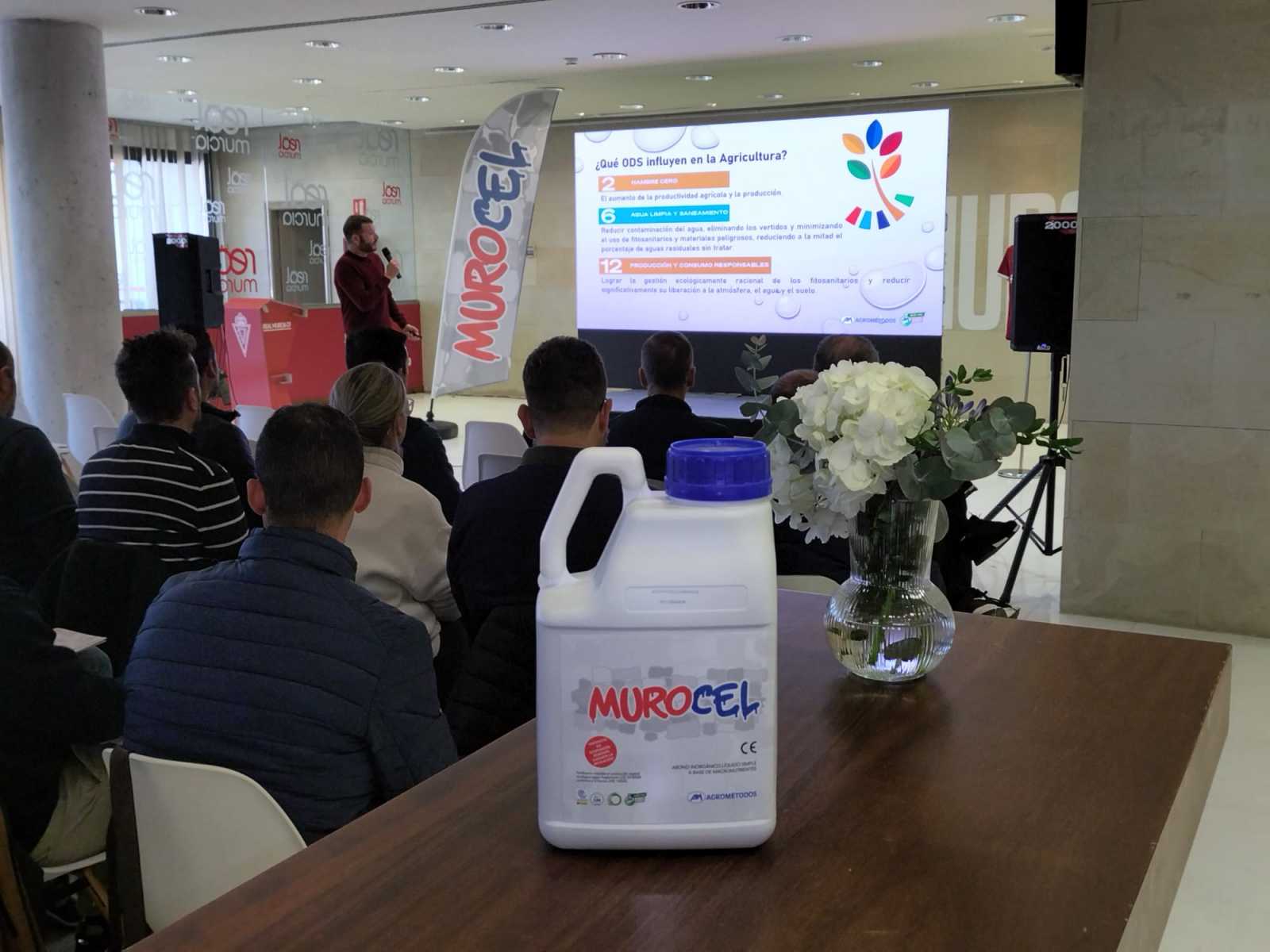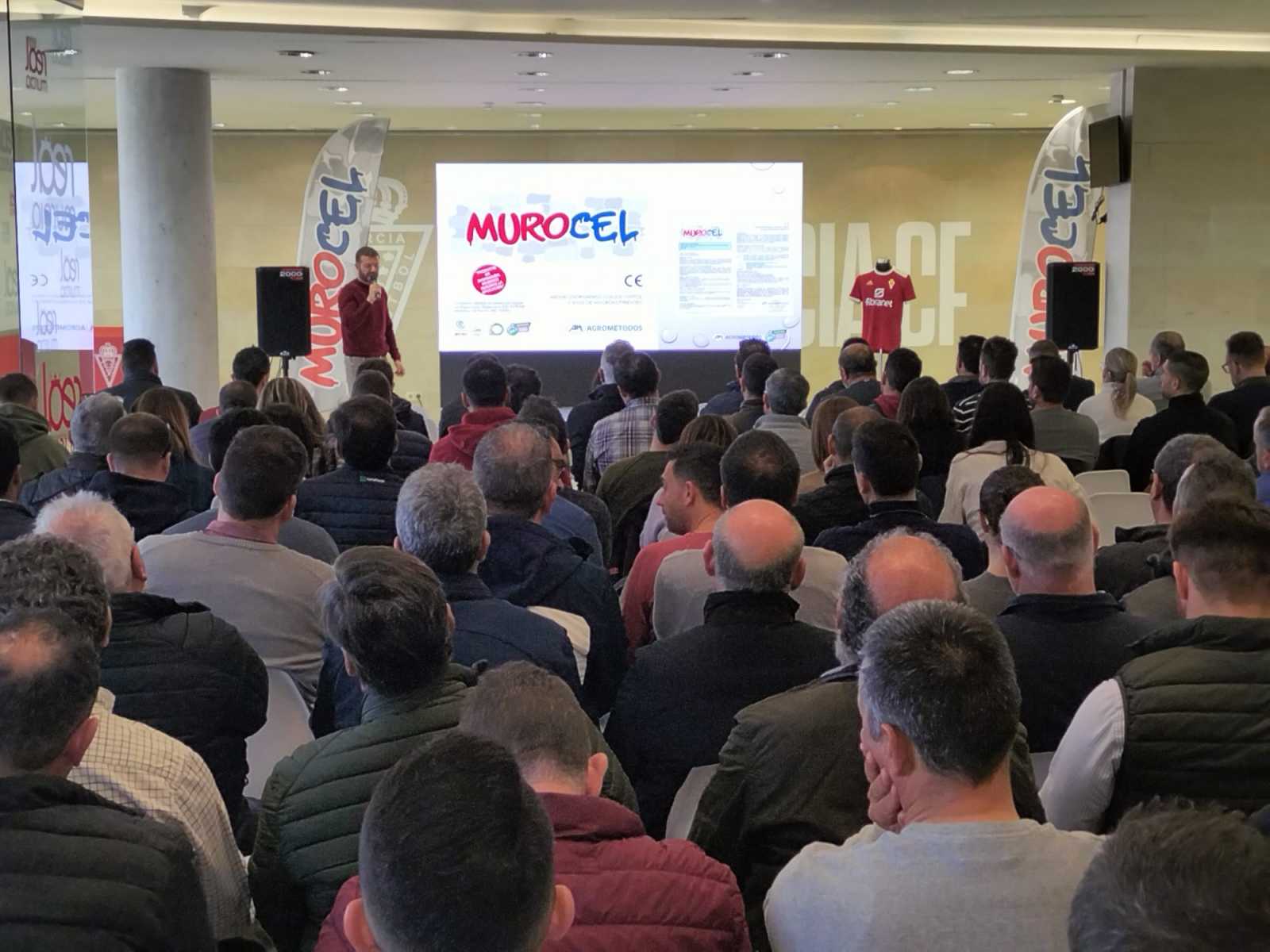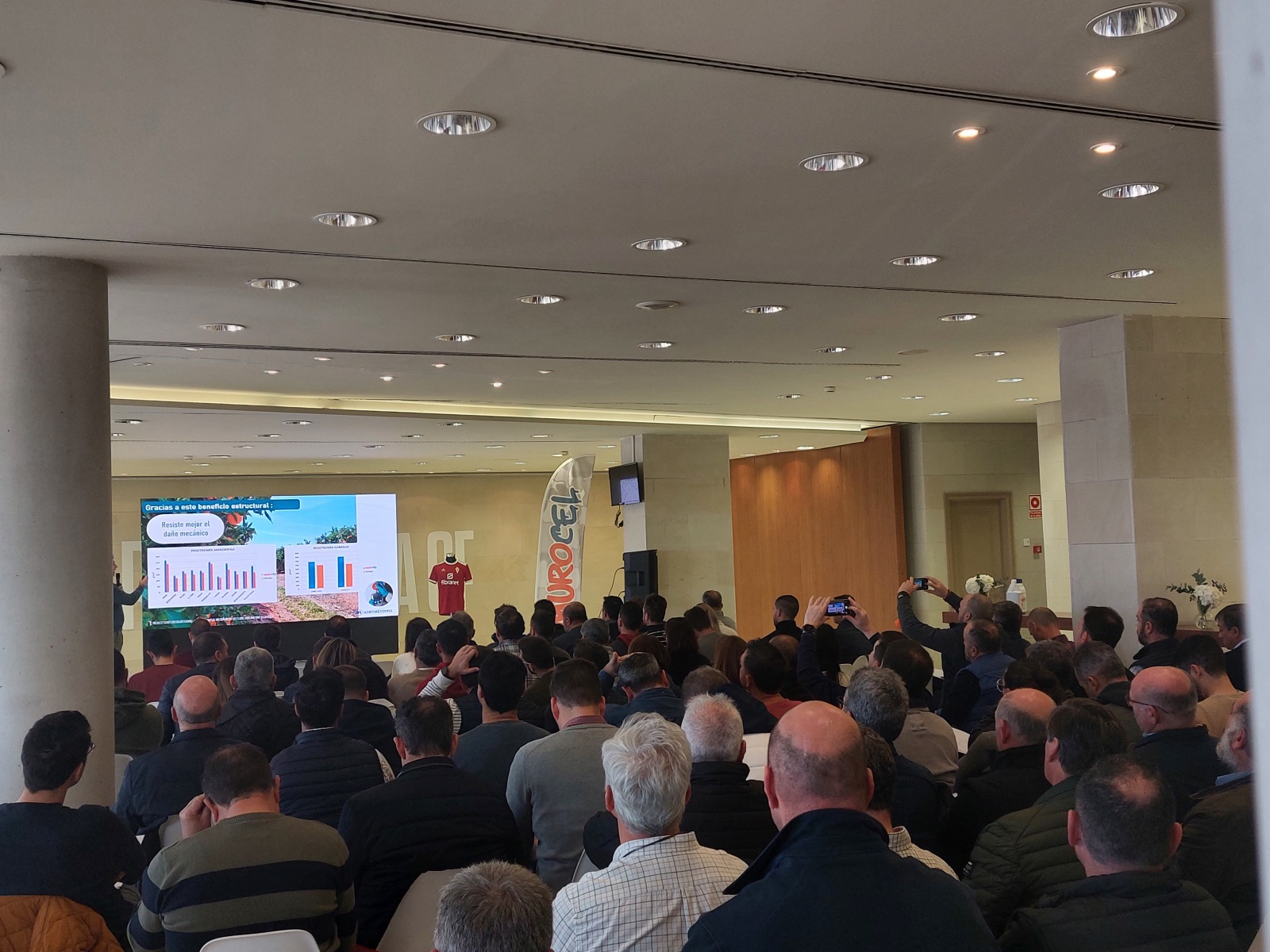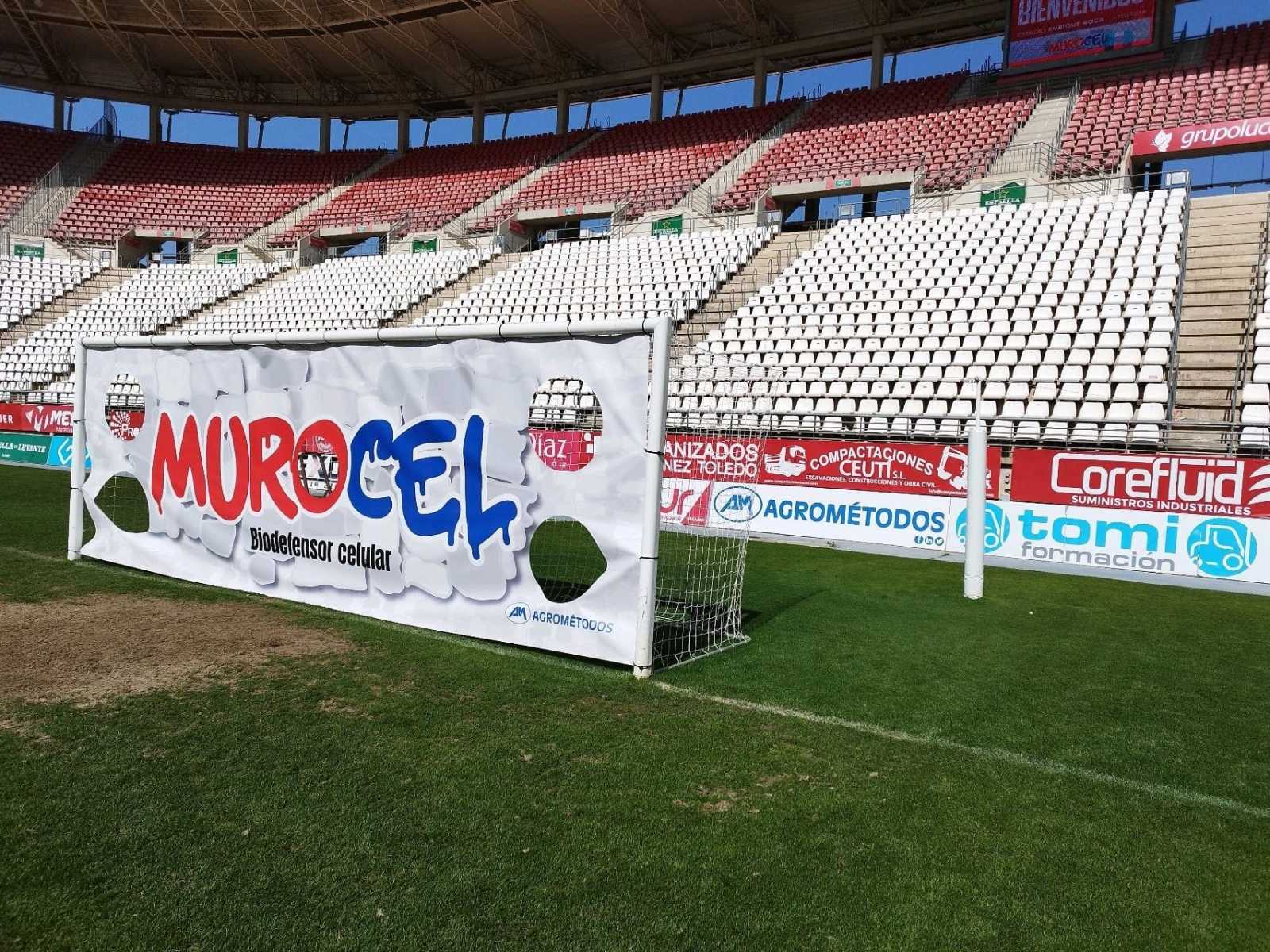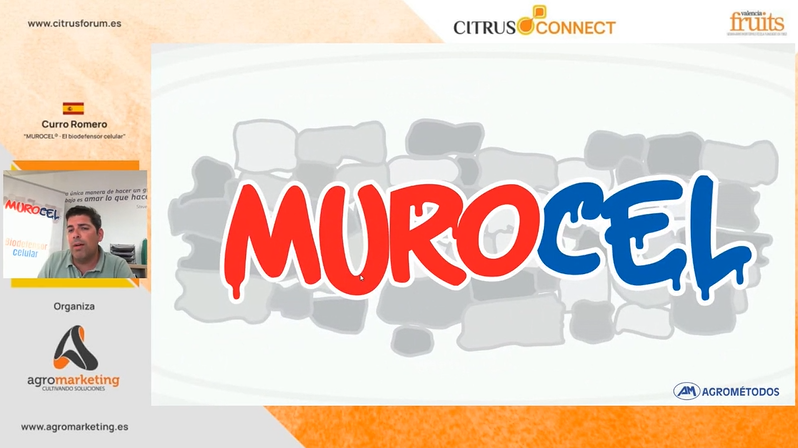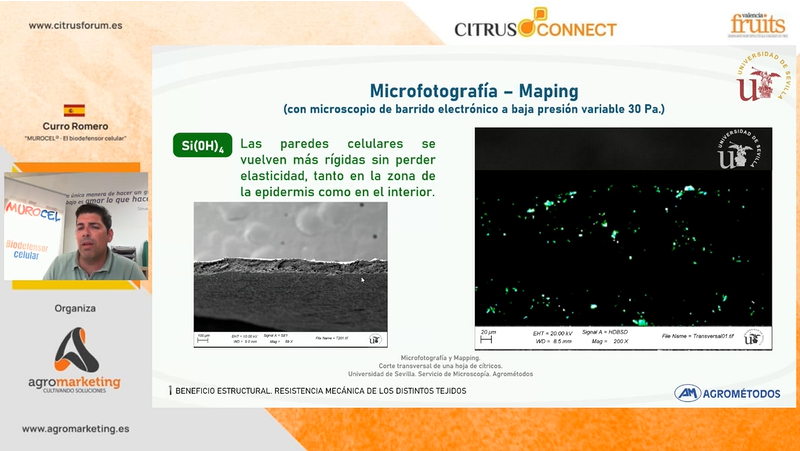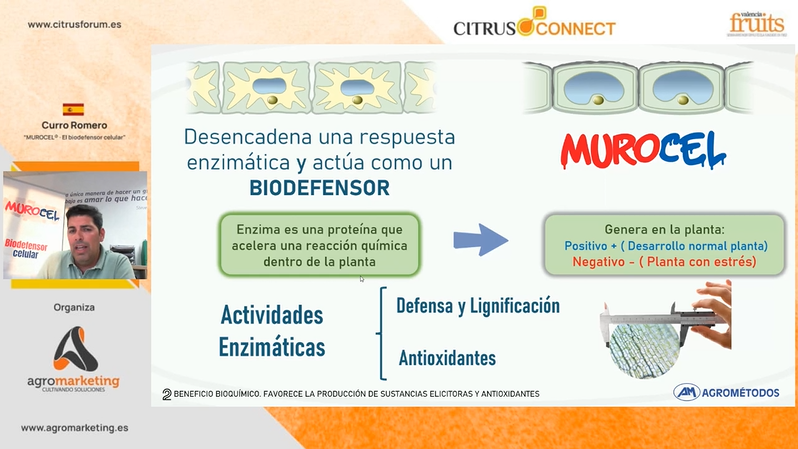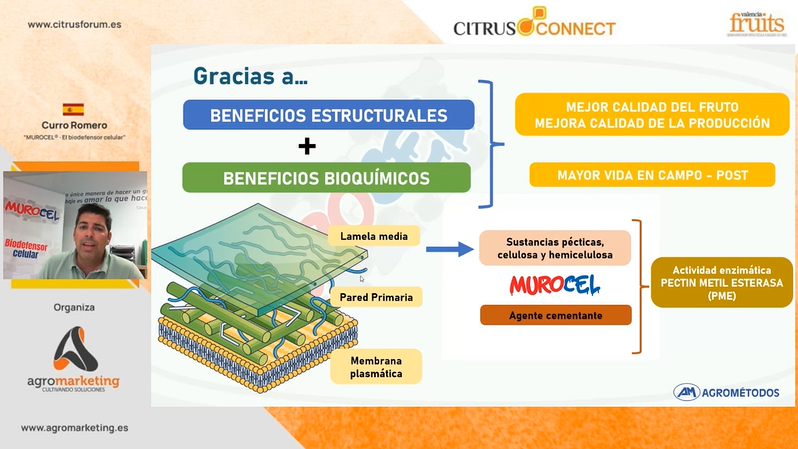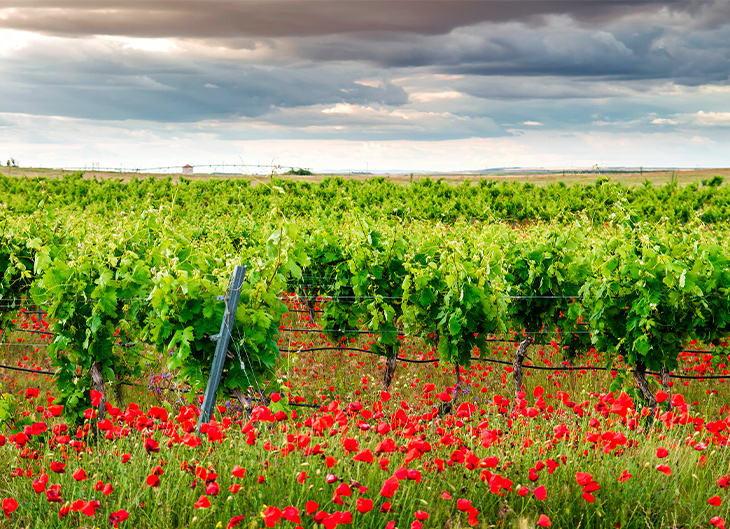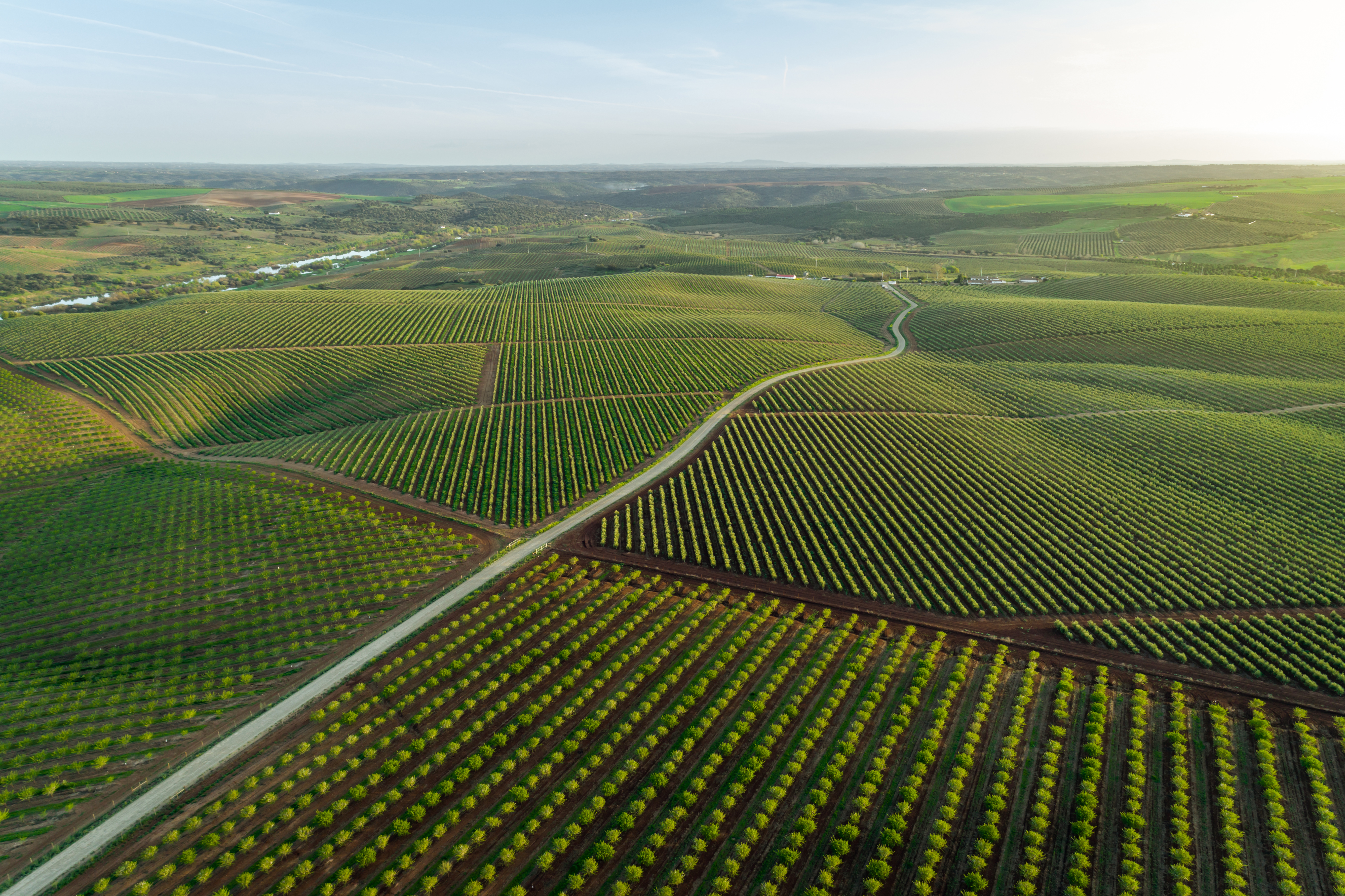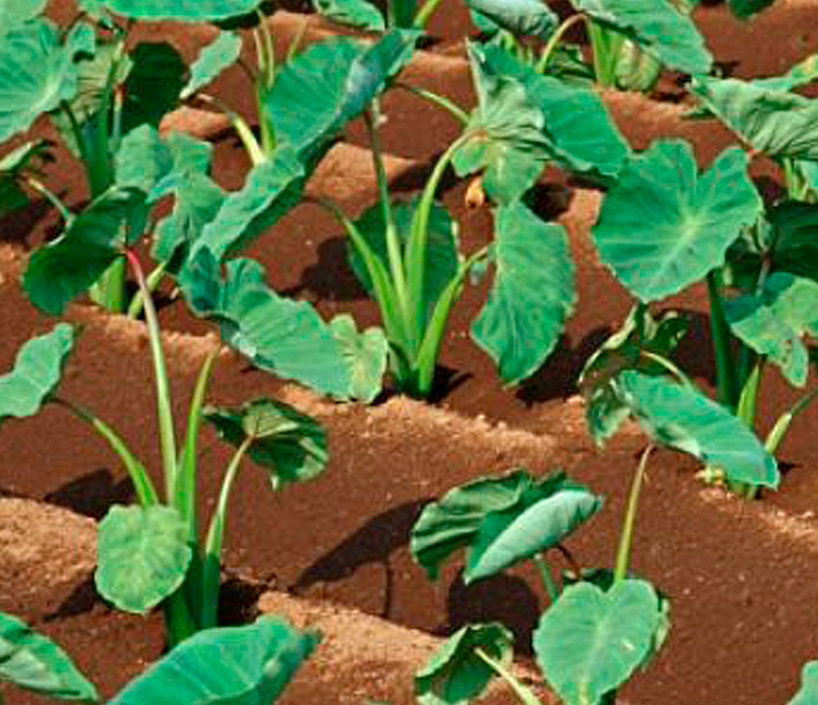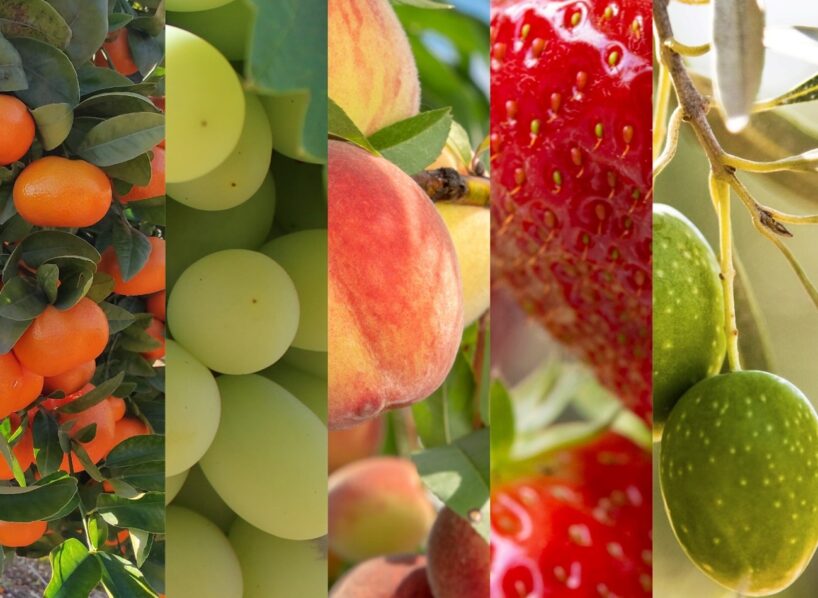
MUROCEL®: The silicon-based cellular biodefender
Silicon is the second most abundant mineral element in the earth’s crust. Most of it is found as quartz (inert) or as crystalline silicates of very complex structure (very slowly soluble) with magnesium, calcium, sodium, aluminum, etc. that are not assimilable forms for plants. Plants take silicon as monosilicic acid (Si(OH)4), which is formed very slowly from insoluble forms or organic compounds, which is why it is deficient in the soil.
Functions of silicon in plants
Silicon is not classified as an essential element, but the role played in the plant by this beneficial element is increasingly relevant (Broadley et al. 2012), as it performs different functions such as nutrition, biostimulation and plant protection.
There are numerous references that describe the different functions and benefits that silicon can play within the plant:
-
- – “improves physiology and performs different functions of a structural and biochemical nature“ (Ma, 2004).
- – “acts as a mechanical barrier that hinders the infection of pathogens and increases tolerance to attack by phytophagous insects” (Ma, 2004).
- – “plays an important role in activating the defense mechanisms of plants at the biochemical and molecular level, such as the synthesis of certain phenolic compounds (phytoalexins)” (Rodrigues and Datnoff, 2005)
- – “forms chemical and biochemical barriers that activate the natural defense system of plants when a pathogen infects them” (Fauteux et al. 2005)
- – “it is important against the damage caused by abiotic stresses, mainly those produced by salinity and drought” (Sacala, 2009)
- – “is an effective protective mechanism against the harmful effects caused by salt stress” (Zhu and Gong, 2014).
- – “is relevant in the tolerance levels of stresses suffered by plants” (Yavaş and Ünay, 2017).
- – “can improve tolerance to diseases caused by fungi, bacteria, nematodes and viruses due to the formation of mechanical barriers and/or changes in plant chemical responses” (Sakr, 2016; Yavaş and Ünay, 2017)
- – Etc.
As mentioned above, everything is summarized in:
- – Structural function by increasing the mechanical strength of different tissues. Monosilicium acid accumulates and forms a silicon-cellulose layer, where it binds with pectins and calcium (Waterkeyn et al 1982) resulting in a double cuticular layer that mechanically protects and strengthens plant structures (Yoshida, 1975; Ma 2003). The cell walls become stiffer without losing elasticity, both in the area of the epidermis and inside:
≫ Generating greater resistance to mechanical damage.
≫ Hindering the penetration of pathogens thanks to the strengthening of tissues.
≫ Protecting plant tissues against excessive water loss through transpiration.
≫ Improving behavior against abiotic stress conditions such as high and low temperatures, water deficit and salinity conditions.
- – Biodefense function by favoring the production of elicitoras and antioxidant substances. The presence of silicon in the plant triggers an enzymatic response and acts:
≫ stimulating the enzymatic activity of defense (enzyme peroxidase (POX)) and consequently increasing the content of lignin in the cell walls.
≫ activating the response of antioxidant enzymatic activities (catalase enzymes (CAT), guaiac peroxidase (GPX) and ascorbate peroxidase (APX)) that inhibit, detoxify and minimize the oxidative damage caused by reactive oxygen species (ROS) as a result of different stresses.
- – The combination of these two functions generates an improvement in the quality of the fruit and shelf life both in the field and, after harvest, in the chamber.
Murocel®
In this sense, Agrométodos presents MUROCEL®, a suspension of calcium silicate free of nitrogen, which provides calcium (Ca2+) and monosilicic acid (Si(OH)4) easily assimilated by plants.
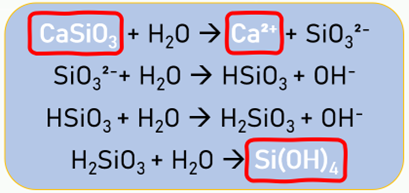
MUROCEL® is a product of foliar and/or irrigation application that can be applied in the initial stages and during the phases of vegetative growth, fruiting and development of avocado, almond, rice, persimmon, cereal, citrus (mandarin, orange, lemon, etc.), stone fruit trees (apricot, peach, nectarine, cherry, etc.), pome fruit trees (apple and pear), strawberry and red fruits, horticultural (tomato, pepper, cucumber, zucchini, eggplant, melon, watermelon, etc.) and ornamental.
When MUROCEL® is applied:
- – In foliar spraying: Si(OH)4 moves from the outside to the inside of the plant by passive diffusion being located under the cuticle, in the cell walls and by apoplastic routes to other walls and neighboring cells.
- – Via irrigation: Si(OH)4 moves in the plant passively by diffusion, through the xylem thanks to transpiration, although there are some silicon accumulator species in which active transport through conveyors has been described (LSi1; LSi2; LSi6,…).
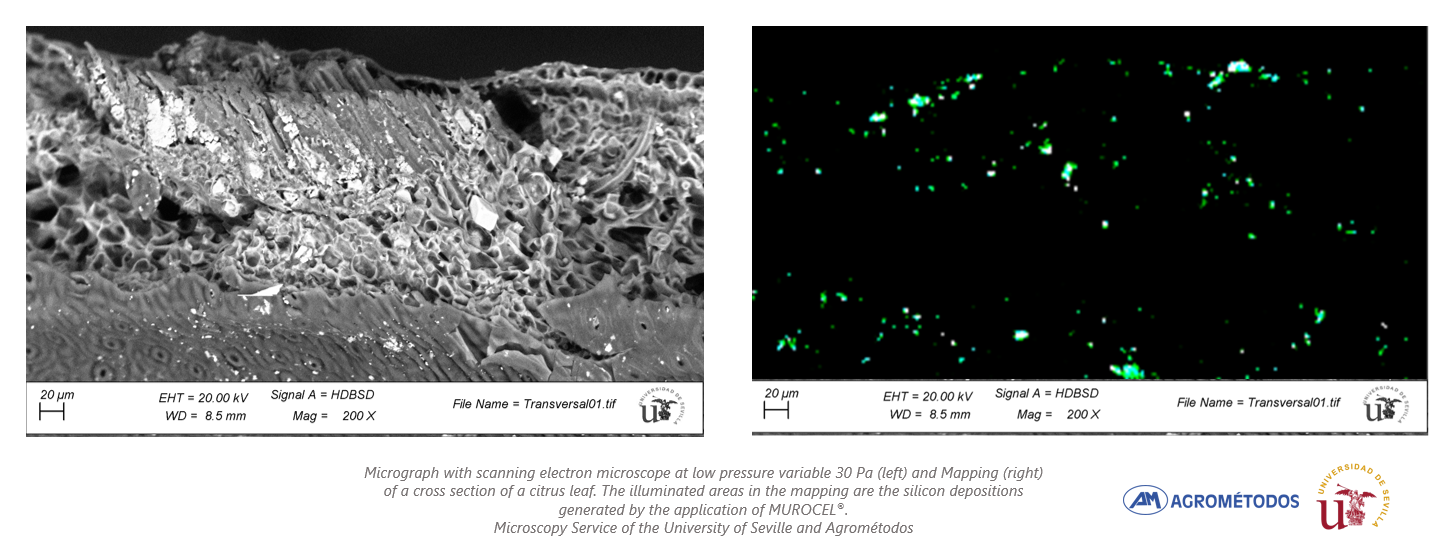
The MUROCEL® application provides:
To the plant:
- – A reinforcement of the cell wall, providing resistance to the different plant tissues against damage or alterations pre/post harvest both biotic and abiotic.
- – A biochemical benefit by activating the production of elicitoras and antioxidant substances.
- – An improvement in the quality of the fruit and shelf life, increasing the firmness and average weight of the fruit, reducing skin alterations and water loss.
To the soil:
- – It favors the release of phosphorus (P) fixed in the soil to bioavailable forms allowing its assimilation by plants.
- – Reduces the toxic effects derived from high concentrations of aluminum (Al), iron (Fe), manganese (Mn), lead (Pb), sodium (Na), etc. favoring root growth and thus improving the nutritional balance of the plant.
In short, MUROCEL® is a cellular biodefender and structural wall based on silicon that gives us quality to crops, being able to be used both via foliar and via irrigation. In addition, it is a product:
- – Authorized in Organic Agriculture according to the UNE 142500 Standard.
- – Respectful of auxiliary fauna.
- – Does not generate waste or safety period
- – Compatible with most phytosanitary and nutritional products normally used, except phosphorus-based formulations.
Likewise, the launch of our new product MUROCEL® began at the end of January, making since then a series of technical presentations in different parts of the national territory (Valencia, Ciudad Real, Murcia, Vega de Sevilla, Huelva, Mérida ,…) and in events such as CITRUS CONNECT. These presentations have explained the benefits that MUROCEL® applications bring to different crops. These days have aroused great interest from distributors, technicians and farmers.


